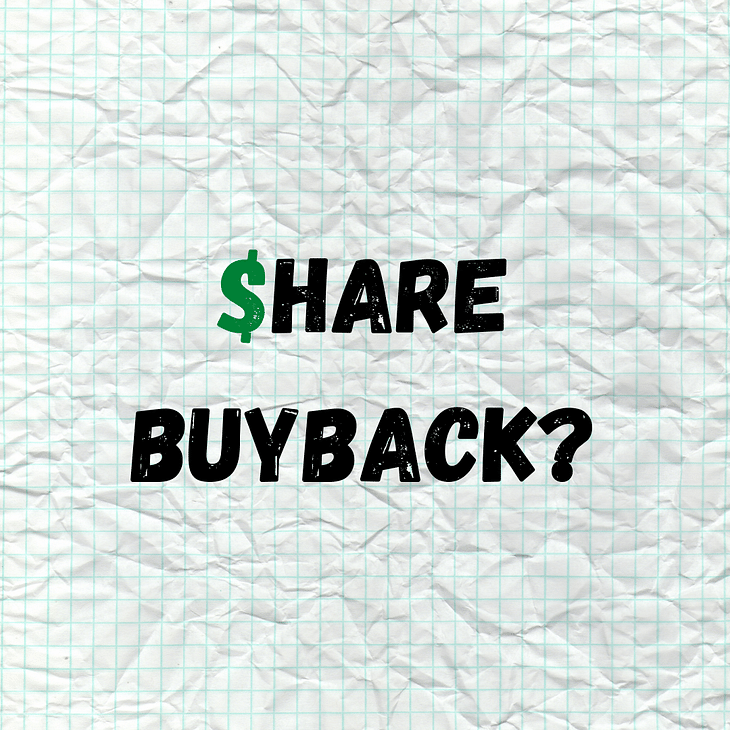What is a Buy Back of Shares? Why Does a Company Buy Back its Shares?

A stock buyback refers to the situation when a company decides to buy back its own shares from its shareholders at fair market value. In a stock buyback, a company reabsorbs a part of its ownership and rights and reduces the total number of shares in the market. A company can decide to buy back its shares from the open market, retail, institutional or non-institutional shareholders. One point to note here is that the buyback of equity shares cannot exceed 25% of the total paid-up equity shares.
Why Would a Company Buy Back its Own Shares?
When a Company Believes it is Undervalued
When a company believes it is undervalued or when it believes that the shares are trading at a cheap price, it may announce a buy back. When a company does so, the number of outstanding shares decreases and there is a subtle buying pressure and a bullish sentiment that gets created.
Improving Financials
A company performs a buyback when it wants to make its fundamental financial figures seem good. By reducing the number of shares in the market, the company's Earnings per Share (EPS), Return on Assets (ROA), and Return on Equity (ROE) see a positive impact because of the buyback. Earning Per Share: The formula for EPS calculation is (Net income – Dividends/ Average Outstanding Shares). When the number of outstanding shares reduces, the EPS will increase.
Return on Assets: The ROA is calculated by dividing the Net Income by the number of Assets. In a buyback, the company's 'Share Capital' or the portion of the company's equity that is listed, is counted as an 'asset' of the company. When this 'Share Capital' reduces, so do the company's total assets. This increases the Return on Assets of a company.
Return on Equity: The ROE is calculated by dividing the Net Income by the shareholder's equity. A buyback decreases the shareholder's equity, thereby increasing the Return on Equity.
When it Has Too Much Cash Lying Idle
When a company has too much cash lying idle and not many projects to invest in, it may opt for a buyback of shares. This excess cash is given back to its investors. When a company buys back its shares, it reabsorbs and retains its ownership of the company. This may give a company more control over the decisions of the company.
To Avoid Unfriendly Takeover by Other Companies
Sometimes companies may not want hostile takeovers from unwanted companies. To ensure that a hostile takeover does not happen, companies often tend to announce buybacks. One such example is the hostile takeover of Mindtree by L&T Infotech. Mindtree had planned for a major share buyback to wall the unfriendly takeover by L&T Infotech, but later decided against it.
A share buyback comes with many challenges. The question of why the company is spending money on the buyback, instead of investing the money to make the company better. It may give an unrealistic picture of the financial health of the company since a change in shareholding is not reflective of the cash flow or performance of a company. There might be regulatory barriers that a company might face in a buyback. Companies performing a buyback might decrease dividend payout. Overall buyback is a very powerful tool to promote positive sentiments about a company in the market.
How Do I Apply for a Buy Back?
You can apply for the buyback through offline and online mediums. The company that has announced the buyback will send a physical offer letter to its shareholders. The shareholders can fill out the form and send it to the necessary address or scan and send a digital copy where required.
On the other hand, if you wish to participate online, then each broker has a separate process to enroll for a buyback. Contact your broker to know more!


Post your comment
No comments to display